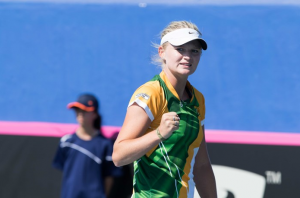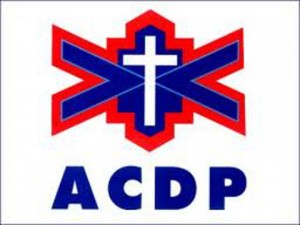Presentation of His Majesty the King of the Zulu Nation
To His Subjects, Before Delivering His Address
by Prince Mangosuthu Buthelezi MP
Inkosi of the Buthelezi Clan
Traditional Prime Minister to the Zulu Monarch and Zulu Nation
and President of the Inkatha Freedom Party
His Majesty the King and members of the Royal Family; His Excellency the President of the Republic of South Africa, Mr Jacob Zuma, and Honourable Ministers present; the Honourable Premier of our Province and his Honourable Ministers; Her Britannic Majesty’s High Commissioner in South Africa and Representatives of the British Government; Their Excellencies members of the Diplomatic Corps and Honourable Consul-Generals; Amakhosi; Honourable Members of the National Parliament and Honourable Members of the KwaZulu Natal Legislature; Their Worships the Mayors, Indunas and Councillors, distinguished visitors and honoured guests.
On 22 January 1879, two nations met on the battlefield both expecting an easy victory. Under Lord Chelmsford’s command, Lieutenant Colonel Pullein and Lieutenant Colonel Durnford led Her Majesty Queen Victoria’s military as they advanced on the lion-shaped hill at Isandlwana. King Cetshwayo’s warriors, having quietly approached and hidden themselves, regiment upon regiment, in the folds of the hills, awaited nightfall to attack.
Their Commander-in-Chief, Inkosi Mnyamana kaNgqengelele Buthelezi, had no intention of sending forth the King’s warriors on the Day of the Dead Moon, for an eclipse did not bode well. The Battle of Isandlwana was planned for nightfall or even the next day. They were confident of overwhelming the enemy, for the King’s regiments numbered around 12 000.
Her Britannic Majesty’s troops knew that they were better armed, and experience of skirmishes throughout the British Empire had led them to believe that a battle here would be short-lived and thoroughly successful. Indeed, at home, the British looked upon the Anglo-Zulu War as just another skirmish and interest in its progress was somehow lukewarm.
Yet by the time the sun set on the 22nd of January 1879, the most profound defeat in its long history had befallen the British Empire; a victory had been etched in the psyche of the Zulu nation; and the fate of King Cetshwayo had been undeniably sealed. Britain was forced to realise that it would take the full might of Her Majesty’s army, a greater force that it took to conquer the whole of India, if they were to conquer the fearless Zulu.
The fluid circumstances that dominate any war forced an early attack by the Zulu regiments. Their presence having been discovered, they came streaming in their thousands towards the British redcoats, who numbered some 1 200; a tenth of their enemy’s strength. As the battle progressed and the horns of King Cetshwayo’s regiments closed around the British, short stabbing spears clashed with Martini-Henry rifle bayonets and blood flowed in the field.
Those who witnessed the battle later described how the hill was covered in slain and wounded men. Some 2 000 Zulu warriors lost their lives on the battlefield, while among the British, only some 60 survived, escaping across the Tugela.
It is easy to understand why a scene of this nature is still remembered 137 years later. We commemorate the Battle of Isandlwana as a watershed moment in the history of our nation. It is a milestone along the journey for liberation, which was taken up 33 years later by the African National Native Congress, founded by my uncle Dr Pixley ka Isaka Seme.
I grew up surrounded by the memories of Isandlwana, for the men who visited my uncle’s palace at KwaDlamahlahla spoke often about the victories and defeats of past generations. I felt connected even then to this rich treasury of history, for I knew that the Commander-in-Chief of the King’s regiments during the Anglo-Zulu War was my paternal great grandfather, while the King himself was my great grandfather on my mother’s side.
My grandfather, Inkosi Mkhandumbe Buthelezi, and his brother, Mtumengana, fought at Isandlwana. Mtumengana laid down his life, but my grandfather was among the warriors who finally cried “Usuthu!” on that glorious day.
It is therefore an honour to rise each year as we commemorate the Battle of Isandlwana, and to introduce His Majesty our King who sits on the throne of King Cetshwayo.
Today, I remember the valour of our nation. I remember Isandlwana. But I also remember the pain that followed as King Cetshwayo saw his nation defeated and his kingdom divided into 13 kinglets. I remember how he pleaded the case for our kingdom before Her Majesty Queen Victoria. I remember how King Dinuzulu was charged with treason, was imprisoned and died in exile. And I remember King Solomon who was born during his father’s imprisonment.
It was from great kings like these that we inherited the struggle for freedom, and from the ordinary people they led; people who lived and worked and loved and fought, always in the hope of freedom. I therefore applaud His Majesty our King for his decision to create orders to honour individuals of distinction.
As we contemplate with pride the strength of our nation, it is my privilege to present His Majesty our King before you. Let us receive his wisdom with open ears.








